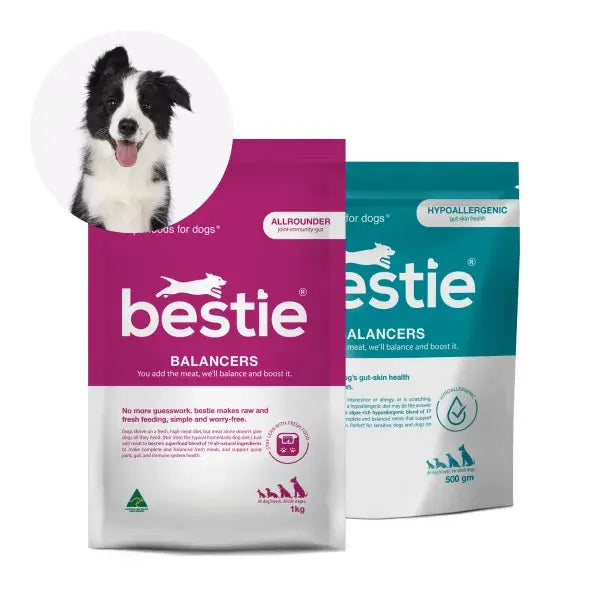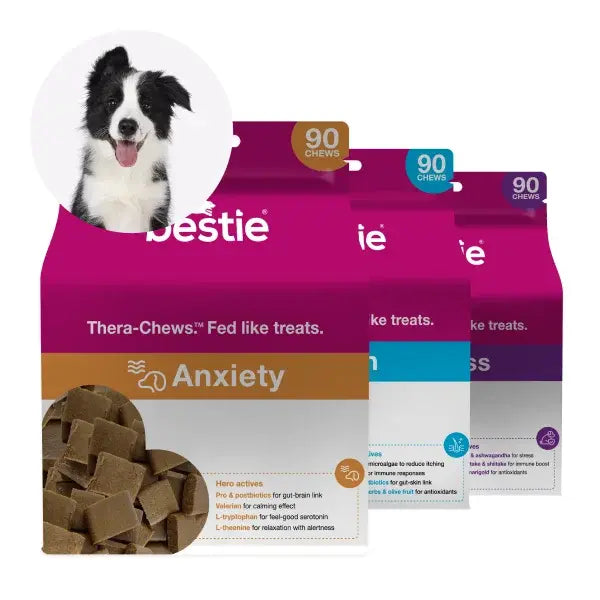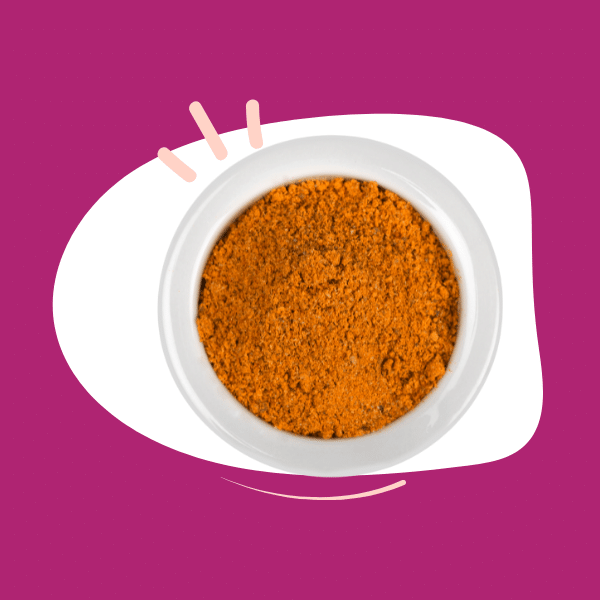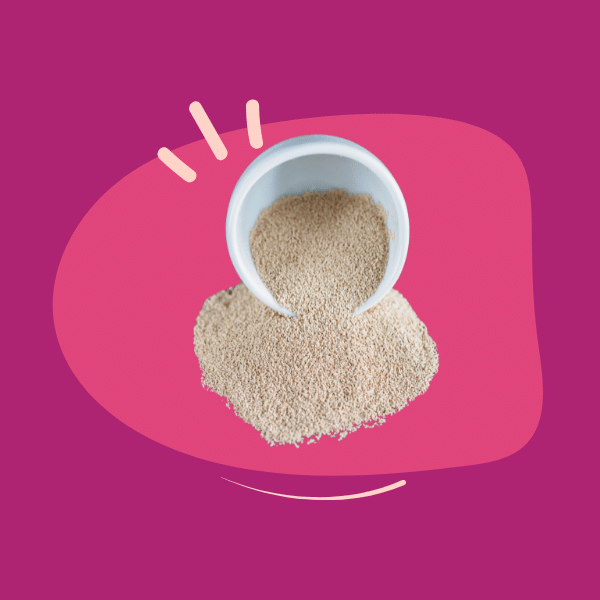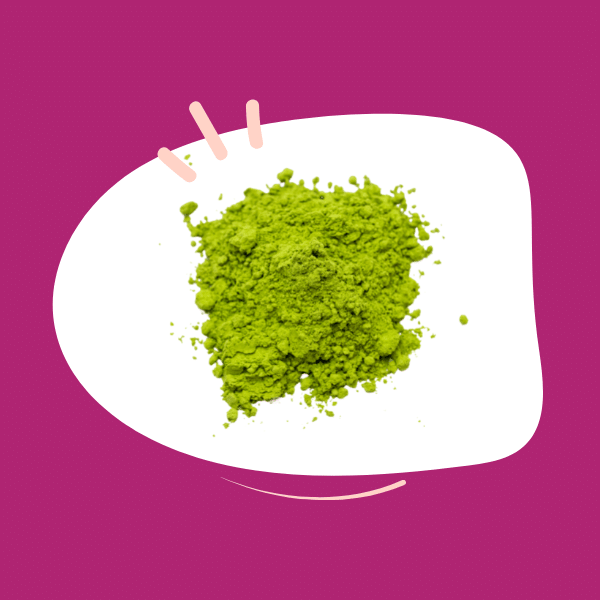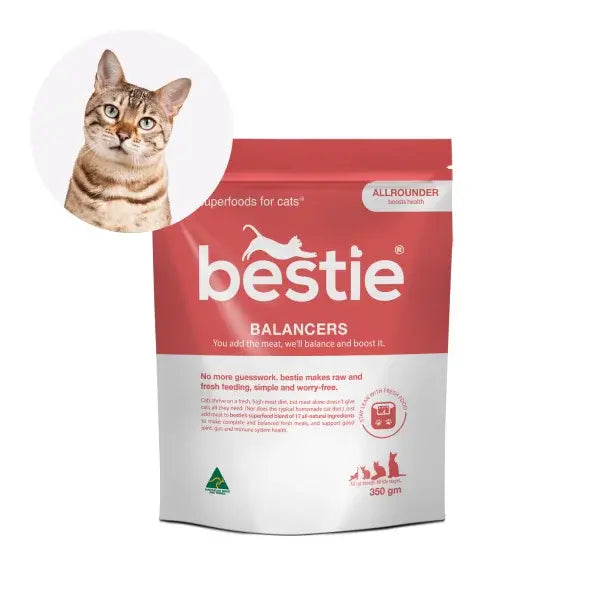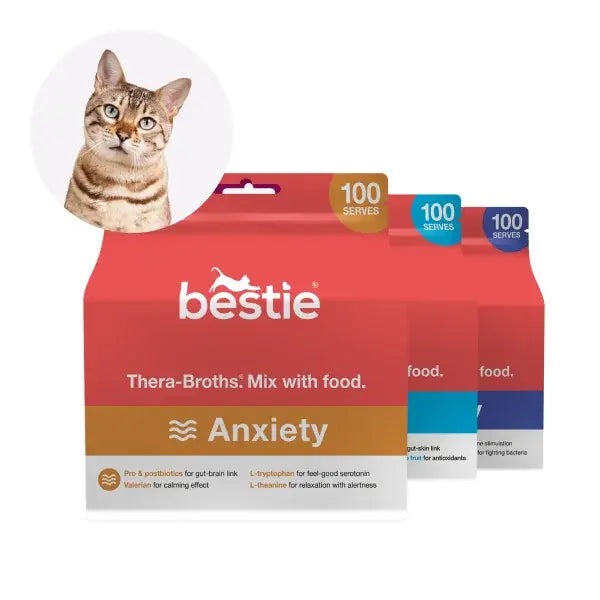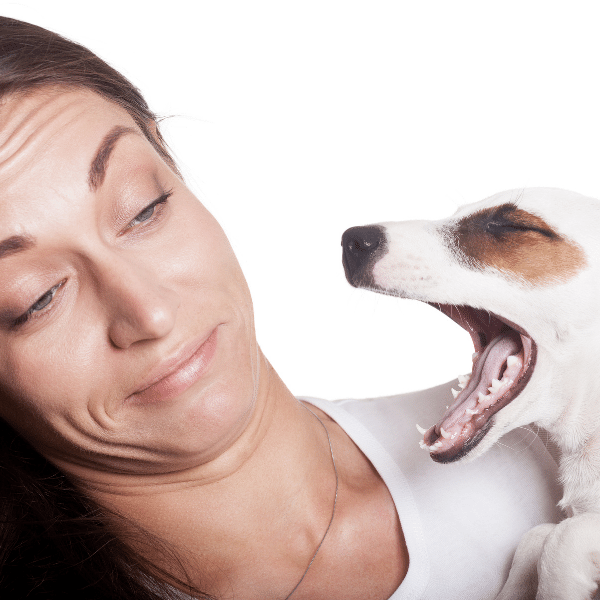For dogs with stinky breath
Stinky breath is not just yuck! It can also be a sign of oral bacteria, or even gum disease.
At Bestie Kitchen, we and our consulting integrative vet have created an anti-bacterial and immune-boosting health jelly designed to help reduce stinky breath, and support your dog’s oral health.
Called The Smooch, this daily health booster is based on two key research studies.
In a nutshell, this is what they show:
Stinky breath or halitosis is a common problem
It can be a sign of periodontal disease
While daily tooth brushing is the most reliable approach, most people don't do it
Dogs given a specific dietary supplement had a noticeable improvement in 10 days and significant improvement after 30 days
Study 1
The first study involved 32 dogs of different ages and breeds, with chronic halitosis. Halitosis is a common problem in dogs, and significantly affects the dog-dog parent relationship. Bad breath comes from microbial metabolism of both exogenous and endogenous protein substrates within the oral cavity, which results in volatile sulphur compound production.

Good oral hygiene along with specific diets can reduce the microbial load to the physiological level, reducing halitosis and avoiding gingivitis and periodontal diseases, that have unpleasant effects on breath.
The association between bad breath and periodontal disease in dogs poses an important issue because this may also be the first sign of periodontal disease noticed by the owner.
Periodontal disease, if left unchecked, will progress and won’t resolve on its own. Irreversible periodontal disease usually leads to bone loss, and tissue destruction. It can also have different origins such as gastrointestinal disorders, renal failure, and respiratory infections.
What they found
The results showed that after 10 days of dietary supplement intake, an overall improvement was observed in 90% of dogs presenting a moderate-to-severe malodor and, at the end of the evaluation, 65% who achieved an improvement, acquired a stabile physiological condition regarding VSCs concentration.
A significant modification of halitosis parameters was observed after 30 days from the beginning of treatment, while a long-lasting effect was still observed even 20 days after the suspension of the treatment.
“Nutrition can be used to manage halitosis. Moreover, nutrition plays a pivotal role in tooth development, oral and gum tissue integrity, bone resistance and even dental and oral disease management,” the researchers noted.
Study 2
The second study followed on from the one above, and involved 104 dogs of different breeds and ages, suffering from chronic halitosis and manifesting at least one symptom among drooling, gingivitis, ulcers, stomatitis, laryngitis, tartar, dental caries, abscess, and lingual lesions.

Given that daily tooth brushing, which is considered the most reliable approach to remove plaque and in turn reduce the onset of gingivitis, periodontal disease, and oral malodor, is accomplished only by approximately 2% of pet owners, the researchers wanted to assess the efficacy of a commercially available nutraceutical diet.
What they found
Fed the diet (the same as in the first research study) for 30 days, halitosis significantly decreased as did drooling, gingivitis, ulcers, stomatitis, laryngitis, dental caries, abscesses, and lingual lesions.

These results are in agreement to what researchers previously observed in dogs affected by chronic halitosis, achieving an overall and long-lasting improvement due to a significant reduction of methyl mercaptan, hydrogen sulfide, and dimethyl sulphide.
In addition, along with gingivitis, ulcers, stomatitis, laryngitis, abscess, and lingual lesions, halitosis shares an overall inflammatory condition that can also be a consequence of a daily intake of contaminated food.
In fact, the researchers recently identified the presence of an antibiotic (oxytetracycline), widely used in intensive farming that tends to bind bone of treated animals remaining fixed for long periods, causing inflammatory and cytotoxic phenomena…

They hypothesise a role for oxytetracycline as a possible cause of the inflammatory condition that characterises halitosis, and that a diet deprived of such antibiotic may represent a valuable alternative to counteract such an unpleasant condition.
Studies:
Di Cerbo, Alessandro & Pezzuto, Federica & Guidetti, Gianandrea & Palmieri, Beniamino. (2015). Therapeutic Effectiveness of a Dietary Supplement for Management of Halitosis in Dogs. Journal of Visualized Experiments. 2015. e52717. 10.3791/52717.
Canello, Sergio & Guidetti, Gianandrea & Di Cerbo, Alessandro & Cocco, Raffaella. (2018). Unraveling a Commercial Formula to Relieve Halitosis in Dogs. Journal of Applied Research in Veterinary Medicine


